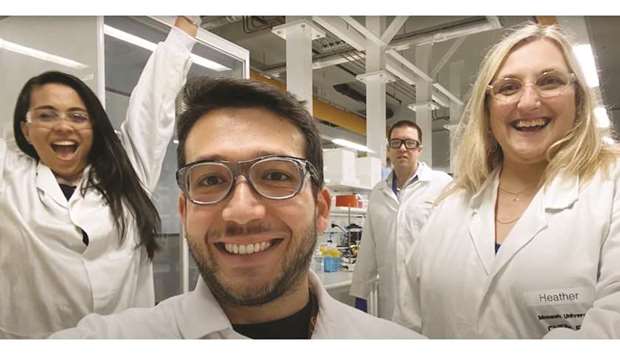Australia’s Victoria state reported a record daily increase in Covid-19 cases yesterday while neighbouring New South Wales said it was banning dancing, singing and mingling at weddings as authorities struggle to contain a new wave of infections.
Victoria, which has forced nearly 5mn people in the country’s second most populous state into a partial lockdown for more than a week, said it has found 428 new Covid-19 cases in the last 24 hours, most from community transmission.
The Victoria outbreak led to Australia posting its second biggest one-day rise in new Covid-19 infections, with 438 cases yesterday. It was largest 24-hour spike since late March, when most cases detected in Australia were people returning from overseas. “These are large numbers today, that is disturbing,” Australia’s acting Chief Medical Officer Paul Kelly told reporters in Canberra before striking a more upbeat note.
“Be patient... we are starting to get on top of the situation in Victoria.”
The surge in new cases reinforced expectations that Victoria will implement tougher restrictions on residents. “We are in the fight of our lives,” Victoria state’s Minister for Health Jenny Mikakos told reporters in Melbourne. The state has already extended a ban on international arrivals by three weeks to at least Aug 8, Melbourne Airport said.
Stricter restrictions would inevitably crimp economic activity in a country facing its first recession in nearly three decades. Data released on Thursday showed unemployment at a 22-year high. Australia has recorded just over 11,000 cases of Covid-19.
The death toll rose to 116 after the death of three people in Victoria yesterday, still well below many other countries. Prime Minister Scott Morrison said his government will provide any assistance needed, as he urged against panic.
“We would not have expected to see the results of the lockdown measures put in place in Victoria as yet,” Morrison told reporters. Australia and New Zealand had hoped to open their borders to each other in September, but the start of any “travel bubble” appears to be delayed.
Amid fears of a national second wave, Victoria state Premier Daniel Andrews urged residents to wear masks when outside, having previously only asked those around Melbourne, the state capital, to cover their face.
Victoria’s neighbours have closed inter-state borders and renewed social distancing restrictions. New South Wales (NSW), Australia’s most populous state, said it has found eight cases of Covid-19 in the last 24 hours, mostly from community transmissions believed to have emanated from Victoria.
NSW state Premier Gladys Berejiklian said new restrictions will be imposed from next week. Funerals and places of worship will be allowed no more than 100 people. Venues must also ensure they have 4 square metres of space per patron.
Weddings in the state will be capped at 150 people, Berejiklian said, and they must remain seated.
“No dancing, no singing, no mingling,” Berejiklian told reporters in Sydney. Less than a month ago, Australia was widely heralded as a global leader in combating Covid-19. But security lapses in Victoria led to people returning from overseas spreading the virus, prompting an inquiry into how the state went from the brink of eradicating the virus to soaring infection numbers.
State Premier Andrews is under mounting pressure, with one of Australia’s biggest selling tabloid newspapers running a front page with the headline: “Dan-made disaster.”
Australian researchers invent 20-minute Covid-19 blood test
Researchers in Australia have devised a test that can determine novel coronavirus infection in about 20 minutes using blood samples in what they say is a world-first breakthrough.
The researchers at Monash University said their test can determine if someone is currently infected and if they have been infected in the past.
“Short-term applications include rapid case identification and contact tracing to limit viral spread, while population screening to determine the extent of viral infection across communities is a longer-term need,” the researchers said in a paper published in the journal ACS Sensors yesterday.
The research team was led by BioPRIA and Monash University’s Chemical Engineering Department, including researchers from the ARC Centre of Excellence in Convergent BioNano Science and Technology (CBNS).
Their test, using 25 microlitres of plasma from blood samples, looks for agglutination, or a clustering of red blood cells, that the coronavirus causes.
While the current swab test is used to identify people who are infected with the coronavirus, the agglutination assay — or analysis to detect the presence and amount of a substance in blood — can also determine if someone had been recently infected, after the infection is resolved, they said.
Hundreds of samples can be tested every hour, the researchers said, and they hope it can also be used to detect antibodies raised in response to vaccination to aid clinical trials.
A patent for the innovation has been filed and the researchers are seeking commercial and government support to scale up production.
The novel coronavirus has infected more than 13.8mn people around the world and killed nearly 600,000 since it emerged in China late last year. Australia has reported more than 11,000 cases and 116 deaths.

Members of a research team, led by Monash University, pose for a photo in Melbourne.
